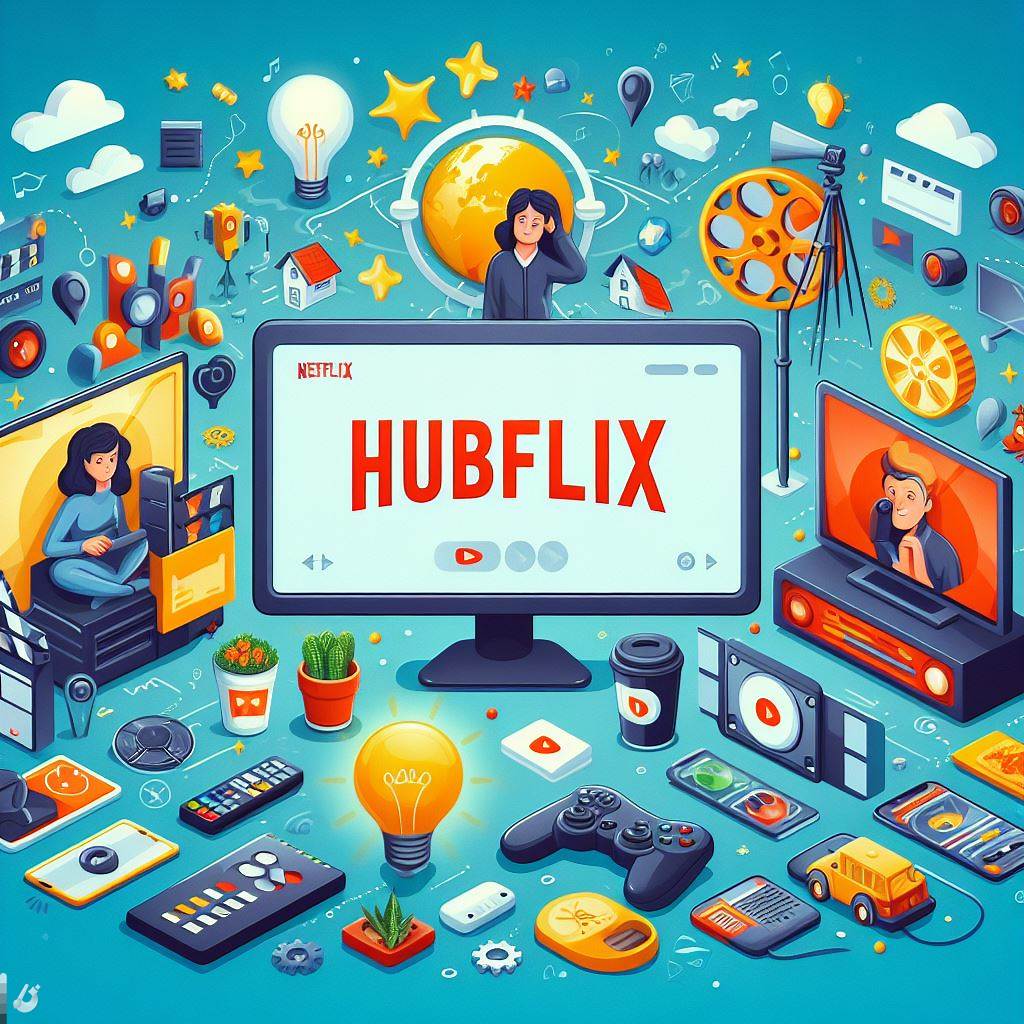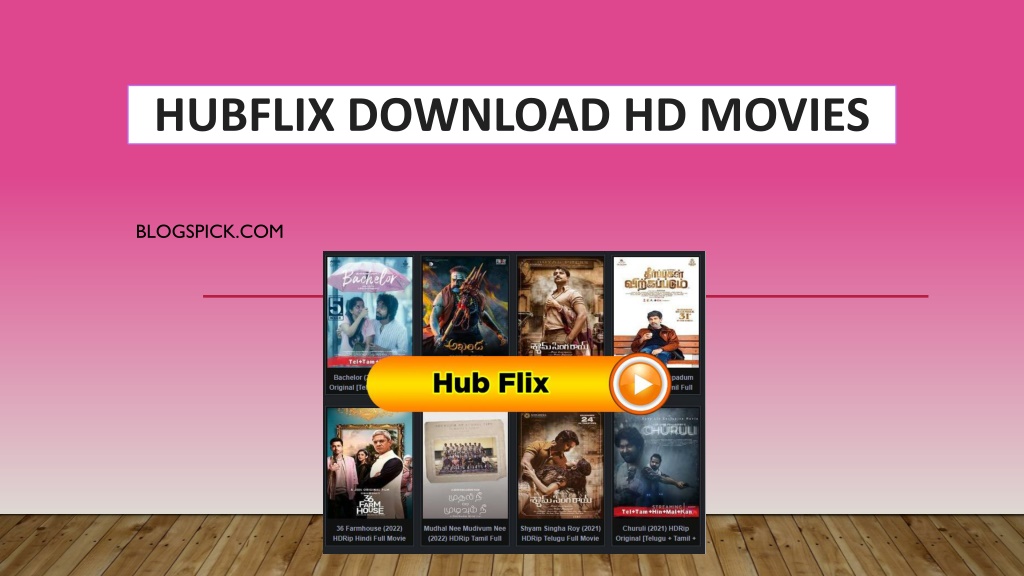Hubflix 4u: Stream Movies & Fix Search Errors Now!
Tired of endless scrolling and still nothing to watch? The sheer volume of online entertainment options can be overwhelming, leaving viewers paralyzed by choice. The digital entertainment landscape is a vast and ever-expanding universe, offering a dizzying array of content for every taste and preference.
From blockbuster movies to niche documentaries, streaming platforms have revolutionized the way we consume media. But with so many options available, finding something truly worthwhile can feel like searching for a needle in a haystack. The algorithms promise personalized recommendations, yet often fail to capture the nuances of individual desires. The result is a paradoxical situation: more content than ever before, yet a growing sense of dissatisfaction.
| Category | Information |
|---|---|
| Name | [Person's Name or Concept Name] |
| Born/Founded | [Date and Place] |
| Occupation/Area of Focus | [Description] |
| Key Achievements/Features | [List of accomplishments or features] |
| Official Website/Source | [Website Name] |
The promise of instant access to entertainment has undeniably transformed our lives. We can now watch our favorite shows on the go, discover new artists with a single click, and connect with global communities through shared viewing experiences. This convenience, however, comes at a cost. The constant stream of notifications, recommendations, and previews can be incredibly distracting, pulling us away from the present moment and into a cycle of endless consumption. The challenge lies in finding a balance between embracing the opportunities of digital entertainment and maintaining a healthy relationship with technology.
- Unlock The World Of 18 Movie Download Hollywood Your Ultimate Guide
- Pr Movies In The Ultimate Guide To Elevating Your Film Experience
Consider the rise of Bollywood films available online. Once relegated to theaters or physical media, these vibrant and emotionally resonant stories now reach global audiences with unprecedented ease. Streaming services have become vital arteries for cultural exchange, allowing viewers to experience the rich tapestry of Indian cinema from the comfort of their own homes. The accessibility, however, also fuels a debate about piracy and the sustainability of the film industry itself. How do we ensure that creators are fairly compensated for their work in this digital age?
Hubflix 4u, for example, aims to provide a wide range of movies, TV shows, and other digital content to its users, promising a seamless streaming experience. Platforms like Hubflix 4u represent a larger trend: the democratization of content distribution. Independent filmmakers, artists, and creators now have the power to bypass traditional gatekeepers and connect directly with their audiences. This opens up exciting possibilities for innovation and experimentation, but it also raises questions about quality control and the potential for misinformation. The responsibility falls on viewers to be discerning consumers of media, to critically evaluate the information they encounter, and to support creators who are producing valuable and authentic content.
The sheer volume of content also necessitates new methods of curation and discovery. Algorithms play a crucial role in surfacing relevant recommendations, but they are not without their limitations. They often prioritize popular content over niche or independent works, potentially creating filter bubbles that limit exposure to diverse perspectives. Human curation, therefore, remains essential. Film critics, bloggers, and online communities can help viewers navigate the vast landscape of entertainment and discover hidden gems that might otherwise go unnoticed.
- Watch Movies Online Like A Pro Your Ultimate Guide To Vegamovies
- Filmy4webcom 2024 Your Ultimate Guide To Movies Downloads And Streaming
Furthermore, the social aspect of watching movies and TV shows is evolving. Online communities provide platforms for fans to connect, share their thoughts, and engage in lively discussions about their favorite content. These interactions can enhance the viewing experience, creating a sense of belonging and shared passion. However, online communities can also be breeding grounds for negativity and toxicity. Constructive dialogue requires empathy, respect, and a willingness to engage with diverse viewpoints. The challenge lies in fostering online environments that are both engaging and supportive.
The quest for compelling entertainment in the digital age is an ongoing journey. There is no single answer, no magic formula for finding the perfect show or movie. It requires a combination of curiosity, critical thinking, and a willingness to explore. By embracing the opportunities of digital entertainment while remaining mindful of its potential pitfalls, we can unlock a world of enriching and transformative experiences.
Perhaps the most crucial skill in navigating this landscape is developing media literacy. Understanding how media is created, distributed, and consumed allows viewers to make informed choices about what they watch and how they engage with it. This includes recognizing bias, identifying misinformation, and evaluating the credibility of sources. In an age of information overload, media literacy is an essential tool for navigating the complexities of the digital world.
Ultimately, the value of entertainment lies in its ability to connect us to something larger than ourselves. Whether it's a heartwarming story, a thought-provoking documentary, or a breathtaking visual spectacle, the best entertainment can inspire, challenge, and transform us. By approaching the digital entertainment landscape with intention and mindfulness, we can unlock its full potential and create a more meaningful viewing experience. The key is not simply to consume content passively, but to actively engage with it, to reflect on its message, and to share our insights with others. In doing so, we can transform the act of watching into a powerful force for connection, understanding, and growth.
Moreover, the ethical considerations surrounding online entertainment are becoming increasingly important. Issues such as privacy, data security, and the responsible use of artificial intelligence are shaping the future of the industry. As consumers, we have a responsibility to support companies that prioritize ethical practices and to demand greater transparency in the way our data is collected and used. By making informed choices about the platforms we use and the content we consume, we can help shape a more ethical and sustainable digital entertainment ecosystem.
The ongoing evolution of technology continues to reshape the landscape of online entertainment. Virtual reality, augmented reality, and interactive storytelling are opening up new possibilities for immersive and engaging experiences. As these technologies become more accessible and affordable, they have the potential to revolutionize the way we consume and interact with media. However, it is important to consider the potential impact of these technologies on our social interactions and our sense of reality. Maintaining a healthy balance between the virtual and the real world is essential for our well-being.
In conclusion, the world of online entertainment is a dynamic and multifaceted landscape that offers a wealth of opportunities for exploration and discovery. By approaching this landscape with curiosity, critical thinking, and a commitment to ethical practices, we can unlock its full potential and create a more enriching and meaningful viewing experience. The journey is ongoing, and the possibilities are endless.
Consider the global reach of streaming platforms. They transcend geographical boundaries, connecting viewers from different cultures and backgrounds through shared viewing experiences. This fosters a sense of global community and promotes cross-cultural understanding. However, it is important to be aware of the potential for cultural appropriation and to ensure that diverse voices are represented authentically. By supporting creators from diverse backgrounds and engaging with content that reflects a wide range of perspectives, we can promote a more inclusive and equitable entertainment landscape.
The rise of mobile devices has further democratized access to online entertainment. Smartphones and tablets allow viewers to watch movies, TV shows, and other content on the go, transforming commutes, travel, and even mundane tasks into opportunities for entertainment. This convenience, however, also raises concerns about screen time and its potential impact on our health and well-being. It is important to be mindful of our screen time and to prioritize other activities that promote our physical and mental health.
The business models that underpin online entertainment are also evolving. Subscription services, ad-supported platforms, and transactional models all compete for viewers' attention and dollars. Each model has its own advantages and disadvantages, and the landscape is constantly shifting as companies experiment with new ways to monetize content. As consumers, it is important to understand the economics of online entertainment and to support models that are sustainable and fair to creators.
The legal and regulatory frameworks governing online entertainment are also constantly evolving. Copyright laws, censorship regulations, and data privacy rules all play a role in shaping the industry. As technology advances and new forms of content emerge, it is important to ensure that these frameworks are up-to-date and effective in protecting the rights of creators and consumers alike. This requires ongoing dialogue between policymakers, industry stakeholders, and the public.
The search for quality entertainment in the digital age is a personal journey. What resonates with one viewer may not resonate with another. The key is to be open to new experiences, to explore different genres and styles, and to cultivate a discerning eye for quality. By trusting our own judgment and seeking out recommendations from trusted sources, we can discover the content that truly enriches our lives. This process requires patience, persistence, and a willingness to experiment. The rewards, however, are well worth the effort.
The power of storytelling remains central to the appeal of online entertainment. Whether it's a gripping drama, a hilarious comedy, or a thought-provoking documentary, the best content has the ability to transport us to other worlds, to introduce us to compelling characters, and to make us feel deeply. By connecting with these stories on an emotional level, we can gain new insights into ourselves and the world around us. The art of storytelling is a timeless tradition that continues to evolve in the digital age.
The role of algorithms in shaping our viewing experiences is a complex and controversial topic. While algorithms can be helpful in surfacing relevant recommendations, they can also create filter bubbles that limit our exposure to diverse perspectives. It is important to be aware of the limitations of algorithms and to actively seek out content that challenges our assumptions and expands our horizons. This requires a proactive approach to media consumption and a willingness to step outside of our comfort zones.
The impact of online entertainment on our attention spans is another area of concern. The constant stream of notifications, recommendations, and bite-sized content can make it difficult to focus on longer-form works. It is important to cultivate mindful viewing habits and to resist the urge to constantly switch between different streams of content. By practicing mindfulness and setting boundaries, we can reclaim our attention spans and engage more deeply with the content we consume. This is an essential skill in the digital age.
The future of online entertainment is uncertain, but one thing is clear: it will continue to evolve at a rapid pace. New technologies, new business models, and new forms of content will emerge, creating both opportunities and challenges for creators and consumers alike. By staying informed, engaged, and adaptable, we can navigate this ever-changing landscape and continue to enjoy the enriching and transformative power of online entertainment. The journey is ongoing, and the possibilities are endless.
The ethical considerations surrounding the use of personal data in online entertainment are becoming increasingly important. Streaming platforms collect vast amounts of data about our viewing habits, preferences, and demographics. This data is used to personalize recommendations, target advertising, and develop new content. It is important to be aware of how our data is being used and to demand greater transparency from streaming platforms. We have a right to know how our data is being collected, used, and shared, and we should have the ability to control our own data.
The role of artificial intelligence (AI) in online entertainment is also growing rapidly. AI is being used to generate personalized recommendations, to create new forms of content, and to automate various aspects of the content creation process. While AI has the potential to enhance the entertainment experience, it also raises ethical concerns about bias, job displacement, and the potential for misuse. It is important to develop ethical guidelines for the use of AI in online entertainment and to ensure that AI is used responsibly and for the benefit of all.
The impact of online entertainment on our social lives is a mixed bag. On the one hand, online communities provide platforms for fans to connect, share their thoughts, and engage in lively discussions about their favorite content. On the other hand, excessive screen time can lead to social isolation and a decline in real-world interactions. It is important to find a balance between online and offline social interactions and to prioritize relationships with family and friends. The key is to use online entertainment as a tool for connection, rather than as a substitute for real-world relationships.
The importance of supporting independent creators in the online entertainment space cannot be overstated. Independent filmmakers, artists, and musicians often lack the resources and support of larger studios and labels. By supporting their work, we can help to ensure that diverse voices are heard and that innovative and original content continues to be created. This can involve subscribing to their channels, donating to their projects, or simply spreading the word about their work. Every little bit helps.
The need for greater media literacy skills in the digital age is becoming increasingly apparent. Misinformation, propaganda, and fake news are rampant online, and it can be difficult to distinguish between credible and unreliable sources. It is important to develop critical thinking skills and to be able to evaluate the information we encounter online. This includes checking the credibility of sources, identifying bias, and understanding the techniques used to manipulate emotions. Media literacy is an essential skill for navigating the complexities of the digital world.
- Hdhub4u Pics Your Ultimate Destination For Highquality Media Content
- New Hollywood Movie Hindi Dubbed 2024 Download Your Ultimate Guide

The Ultimate Hubflix 4U Guide Unlocking Endless Entertainment

Unveiling Hubflix 4u Your Ultimate Streaming Destination

Discovering The World Of Hubflix HD Movies Your Ultimate Movie Guide